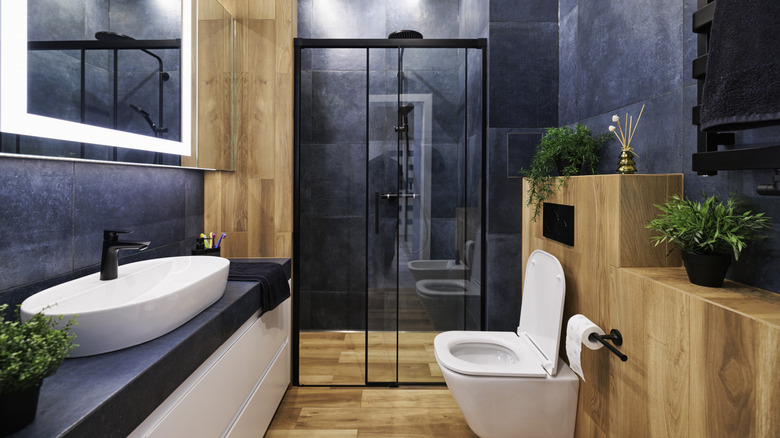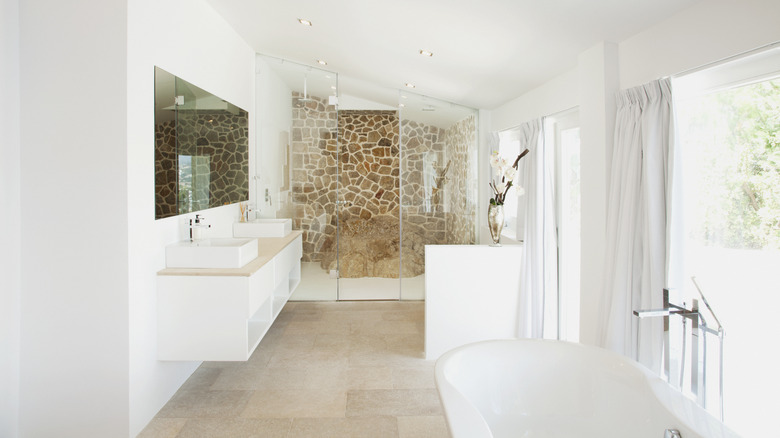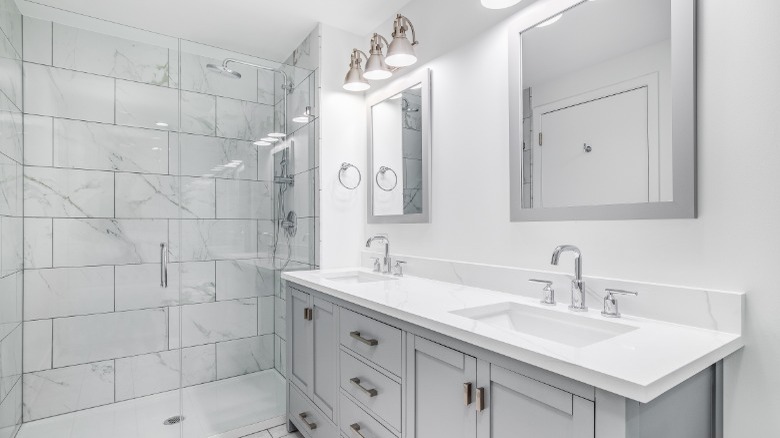What Is A Curbless Shower And Is It Right For Your Bathroom?
If you have a walk-in shower or are considering having one put in, one of the many decisions will be whether or not to go curbless. A curbless shower is exactly what it sounds like; a shower with no curb, creating a seamless transition throughout the entire bathroom. The floor is, of course, sloped downwards to allow the water to flow down the drain, which prevents it from spilling out onto the floor and throughout the space. This design will typically require a linear drain.
One reason curbless showers have become a rising trend is their wheelchair accessibility, making it easier to navigate for older and disabled people who may worry about tripping over a high step. But whether it's right for your bathroom or not will depend on several factors, including your personal needs and design preference. We've put the pros and cons together to help you make an educated decision.
The benefits of a curbless shower
One of the biggest reasons to ditch the curb is aesthetics. If you have a tiled bathroom, a curbless shower creates continuity throughout the entire space. The finished look has a modern, spacious feel and cohesive design you simply have to admire. If you have a small bathroom, a curbless shower can open it up by eliminating visual breaks. And although many different materials and designs are available, they are often made entirely of glass, giving the bathroom an ultra-chic vibe.
Curbless showers are easier to clean, as you can easily transition from the floor to the shower, and there are fewer nooks and crannies to scrub soap scum out of. This is a big plus! The curbless walk-in shower is extremely functional and can even be with or without a door. There are multiple customizations and upgrades that work in harmony with their structure. If you're considering a wet room design, a curbless shower is a great start.
The disadvantages of a curbless shower
As with all things good, there are also a few disadvantages to consider. For one thing, they are less private, which can certainly take a bit of adjustment. For some, the open design is just a little too open for comfortability. And since one of the big draws of curbless showers is the seamless aesthetic, using frosted glass or curtains isn't a compatible option. Another concern is that you might notice more heat escapes with this design, resulting in colder showers.
Additionally, the possibility of water escaping the shower is a concern, especially with doorless models. It's easy to splash water outside the enclosure while showering, and if you're not careful, you could end up with a slippery mess. It will be important to be sure you have it installed by a reputable contractor so these worries are kept to a minimum. Lastly, the cost is higher than a curbed shower, typically running around $500 to $700 more.


